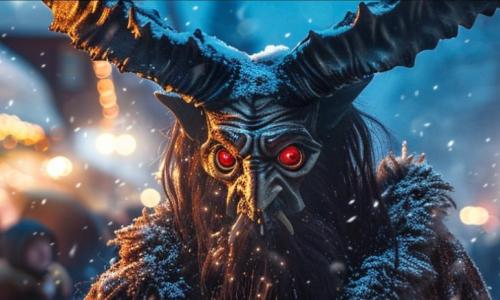The New Year arrives rich with excitement and promise, particularly in Chinese cultures, where traditions take the centre stage. For many, this celebration is synonymous not only with a fresh start but also with vibrant customs. In this article, we will delve into the Lunar New Year's significance, often interchanged with terms like the Chinese New Year or simply the New Year.
What is the Chinese New Year?
The Chinese New Year is not just a date on a calendar; it is a significant cultural event with ancient traditions that go back centuries. Unlike the solar-based Gregorian calendar that most people use today, the Chinese New Year is based on the lunar calendar.
A unique celebration: Unlike the 1 January celebration that most people know, the Chinese New Year starts according to the phases of the moon, so the date changes every year. This difference sets the stage for diverse cultural practices that highlight the lunar calendar's impact on various festivities.
Historical background
Looking at history, you'll notice that the Chinese New Year has evolved significantly over time. This celebration has been observed for thousands of years, demonstrating how people have preserved ancient traditions while also embracing modern changes. The Chinese New Year, also called the Spring Festival, used to mark the end of winter and the start of spring, representing new beginnings. Traditional activities like cleaning the house to get rid of bad luck, putting up red decorations and lanterns, and setting off firecrackers to scare away evil spirits are still very important today. Over the years, new trends and technology have changed how we celebrate. For instance, instead of giving red paper envelopes (hongbao) filled with money, many people now use mobile apps to send digital red envelopes, making the tradition more modern. Public performances like lion and dragon dances still captivate audiences, but now they also include light shows and LED-lit costumes. Restaurants and homes are busy making traditional foods like dumplings, fish, and sweet rice cakes using family recipes. Chinese New Year is a time for joy and family gatherings, and it connects the rich history of ancient China with its vibrant present and promising future.
Calendar of Events
The Chinese lunar calendar is very important for deciding when celebrations like the Lunar New Year take place. This traditional calendar, which follows the moon's cycles, has been used for many years to guide farming, religious, and cultural activities. Each year, a detailed system helps to track and predict the dates for these special events, which often change every year. The process of finding these dates involves careful calculations and watching the moon phases and other sky events. This old way of keeping time is not just for marking celebrations but is also a key part of Chinese culture. Knowing the lunar calendar helps people stay connected to their heritage and keep traditions alive. As a result, even today, the Chinese lunar calendar is very important for planning and celebrating important events and festivals.
Traditions and customs
Pre-celebrations
As the Lunar New Year gets closer, people get very excited and start preparing. They clean their homes really well and decorate them, which represents a fresh start and helps keep bad luck away in the coming year.
New Year's Eve
For many families, New Year's Eve is a time for getting together. Family members come together for big meals where the food has special meanings. The reunion dinner is an important event, meant to bring strength and lots of good fortune.
Festivities of the new year
Experience stunning fireworks that light up the skies and lively dragon dances that fill the streets during Chinese New Year celebrations. These exciting cultural performances entertain everyone, while red envelopes filled with money are given as symbols of luck and good fortune.
Lantern festival
At the end of the celebrations, there's the amazing Lantern Festival. During this event, beautifully designed lanterns light up the cities, representing unity and hope. Joining in activities like solving riddles attached to the lanterns helps bring the community together.
Zodiac and horoscopes
The Chinese zodiac is an important part of tradition. It assigns an animal to each year in a repeating cycle of 12 years. Each animal sign offers advice and predictions that can affect people's decisions and their luck for that year. For example, if you were born in the Year of the Dragon, you are thought to be smart, energetic, and a born leader. The zodiac affects not only personal traits but also suggests favourable dates for big life events like weddings, starting a business, and travel. Many people check their zodiac readings often to get advice about their career, relationships, and health. The Chinese zodiac is also a big part of Chinese New Year celebrations, with specific customs to bring prosperity, avoid bad luck, and honour the year's ruling animal. Knowing your Chinese zodiac sign can help you understand yourself better and connect with cultural traditions that have been passed down through many generations.
Celebrations around the world
People all around the world enjoy Lunar celebrations, which go beyond borders. Cities like San Francisco, London, and Sydney have lively events where Chinese communities and people from other cultures join together happily to celebrate these traditions.
The influence of Chinese New Year customs stretches far beyond geographical confines. Experiencing or participating in these festive occasions offers invaluable insights into rich traditions cherished worldwide – so why not immerse yourself next time it rolls around?
Fun facts
Here's a quick overview of some unique traditions that make these celebrations special! For example, did you know that in some places, people avoid using scissors on Lunar New Year's Day because they believe it might cut away their good luck? Also, the colour red is very popular because it is thought to bring good luck. According to old legends, loud firecrackers were used to scare away mythical monsters called Nian. By learning about these interesting parts of Chinese New Year celebrations, we uncover fascinating stories that are important to the culture and continue to interest people today.













Add new comment